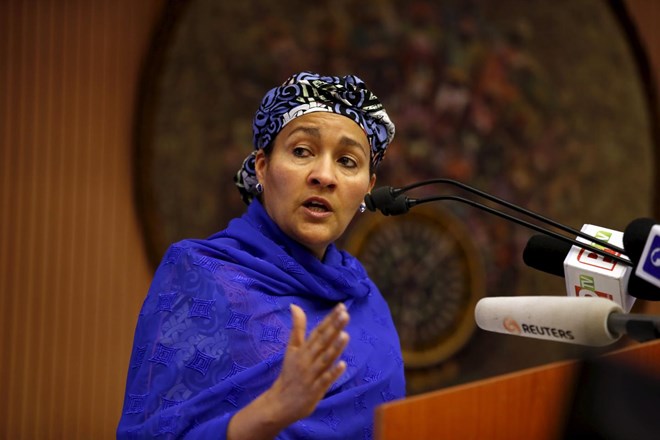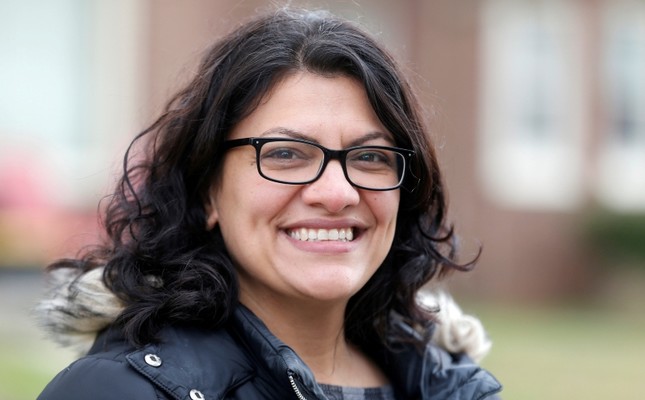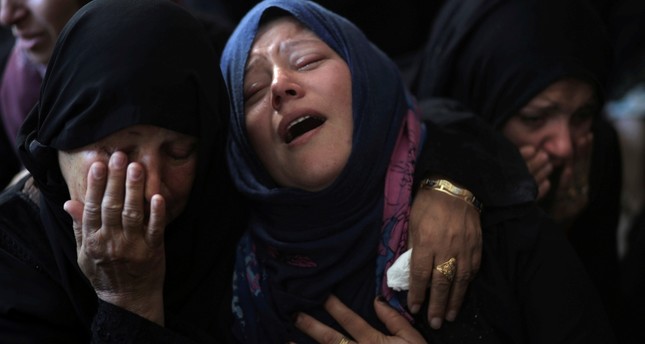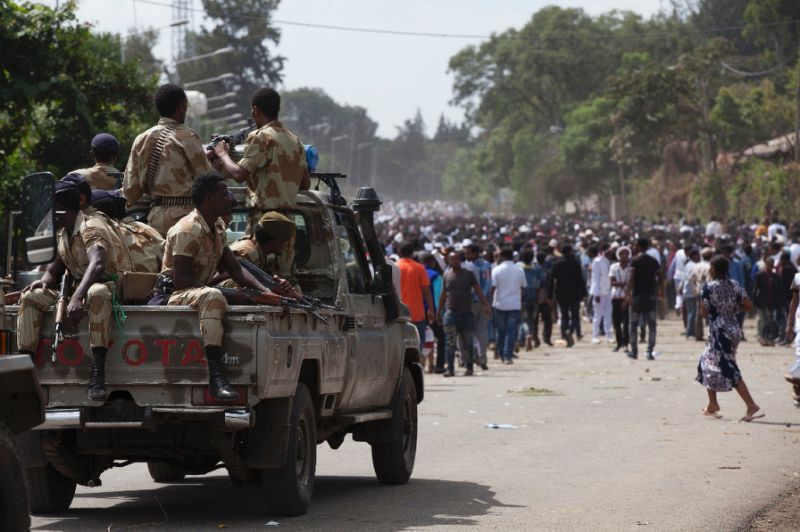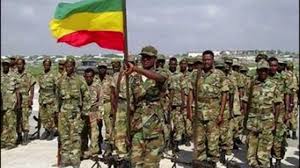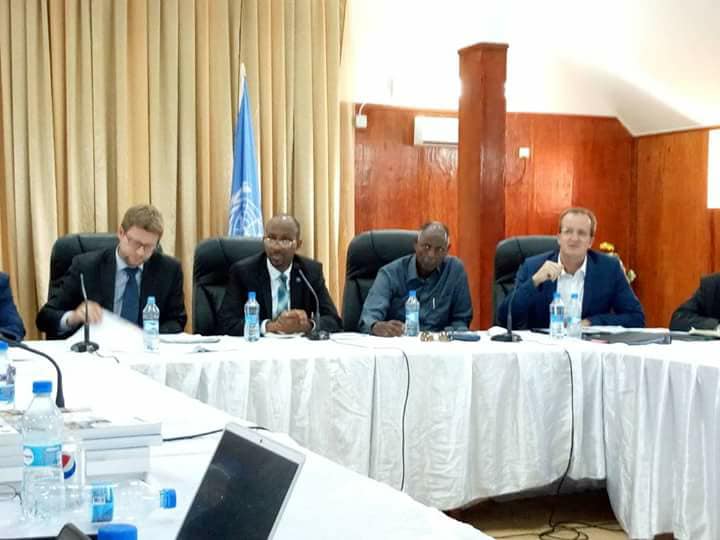Not long ago, Amina J. Mohammed, the U.N.’s deputy secretary-general, witnessed firsthand democracy in action in Africa. After Muhammadu Buhari won Nigeria’s presidential elections in March 2015, he appointed her environment minister. The election marked Nigeria’s first peaceful transition of power in decades; since attaining independence in 1960, the country’s political history had been marked by a series of coups and power grabs.
And yet, Mohammed says, many African countries have not made the same progress that Nigeria has—rather, there’s something of a democratic recession going on. Many countries need to strengthen their institutions and face up to rising threats like extremist ideology and climate change. Mohammed spoke to Newsweek about how she sees the current state of democracy in Africa. She spoke from the Moroccan city of Marrakech, where she participated in the Ibrahim Governance Weekend, an event aimed at promoting good governance on the continent.
Why is there a democratic recession in Africa? What factors lead to a democratic recession?
We must acknowledge that people have tried to put in place a framework for a response to democracyin their countries. My concern is whether we have cut and past a framework that doesn’t work forAfrica, or that we are playing catch-up. In normal circumstances, countries have had up to 200 years for their democracies to evolve and they’re still working on them. In our case, we’ve got so many deficits, like weak infrastructure; we haven’t got the institutions to deliver on a number of the campaign promises one would make; with the election itself, we concentrate on having a peaceful one-person one-vote outcome.
There’s a lot in place that tries to help us, such as strengthening regional blocs. In West Africa, the Economic Community of West African States (ECOWAS) has worked positively to ensure free and fair elections. There have been some good transitions—Ghana most recently [in December 2016]—but there have also been interventions where the leadership would not have otherwise transitioned peacefully, like in Gambia.
Has West Africa become a leader in democratization on the continent?
I do think ECOWAS is a model for the continent. It’s still a work in progress. We have enormous challenges—like in the Sahel, where human trafficking, drug trafficking and small arms circulation all threaten to undermine any gains. But it is an example and West African leaders have worked very hard and deployed a number of mediation tactics that mostly begin and end with dialogue. Many leaders [who attempt to stay in power beyond their tenure] need that soft landing. You’ve got to transition without fear, and many leaders are left fearing the day after—the repercussions of many years of rule that may not have delivered on people’s expectations.
In Gambia, Yahya Jammeh has so far escaped prosecution for alleged abuses committed throughout his 22-year rule. Do you think he should be held to account?
While today you want that prosecution, it may not be the best time and place for it. Eventually one hopes for justice and for people to have their day in court, but I think what you have to weigh up is the peaceful transition and what the implications of prosecution are. Sometimes you have a choiceless choice. Jammeh has left the scene, and that gives us a chance to lay down stronger building blocks for that nation. Just to have him removed a few blocks away to Equatorial Guinea [where Jammeh is currently in exile] is not the whole answer; you have to very quickly get behind the new government and ensure that it brings cohesion to a society that was divided in the elections and starts delivering on the dividends of democracy very quickly.
Somalia recently held limited elections , where clan elders chose the electorate—which was only 14,000 out of a population of 10.5 million—who then elected MPs, who in turn selected the president. Given that the elections were not of the one-person, one-vote system, do you think they constituted a step forward in democracy for Somalia?
The will of the people can be represented in very different ways. Somalia is an incredibly difficult context, it has tried again and again, and I think this has been the most successful way in which they’ve got representation of the people in what is essentially still a conflict situation. They’ve now got a president and a prime minister who are pulling in the same direction to stabilize the country.
Somali President Mohamed Abdullahi Mohamed, known as Farmajo, makes an address in Mogadishu after he was elected president on February 8. Despite allegations of corruption and a limited electorate, Mohammed says Somalia’s recent elections constituted a step forward for the country.
MUSTAFA HAJI ABDINUR/AFP/GETTY
I think the political system in Somalia will evolve as they stabilize, as people get more voice, as there is security. But maybe, in the end, one-person one-vote isn’t the way that they do things, maybe representation is done differently. In Africa, we’ve had other ways and means of choosing leaders, with a fair amount of stability.
Former Nigerian environment minister and now U.N. deputy secretary-general Amina Mohammed speaks at the opening session of a public lecture on Nigeria and the Commonwealth of Nations in Abuja, Nigeria, on February 18, 2016. Mohammed believes the Buhari administration is taking the right steps to tackle the root causes of Boko Haram’s insurgency, but needs to speed up its response.
In northeast Nigeria, the Boko Haram insurgency has been largely responsible for creating a massive humanitarian crisis. How well is the Nigerian government doing at tackling the root causes of the conflict, particularly violent extremism and corruption?
The leadership came in with a very strong message of zero tolerance. Boko Haram had hold of several areas in our country when we came in and that was addressed [by the Nigerian military and regional forces.] What the Buhari administration has done is prioritize three important issues. Firstly, dealing with the security situation, which is the first responsibility of any president to his people; secondly, restructuring and putting in place solid governance that deals with corruption and an enormous loss of resources; thirdly, looking at how we can better invest in infrastructure that is needed as the foundation to build on for development in Nigeria.
The expectations are incredibly high when you have a leader that has the integrity that President Buhari has, but then there is the paraphernalia behind him that also has to respond. We must not forget that there are many people who will not want to see the status quo that they benefited so much from change. Plus, you’re trying to do all of this when institutions are weak, and when the country has conflict and demands on different fronts.
The struggle is very real. We can always do much better and we need partners to support that. This problem is not of this administration’s making, but they have a responsibility to put it right. I think they are taking the right steps; some of them could be reinforced. Certainly there is an urgency to this where the administration must look at taking a number of decisions much more quickly.

